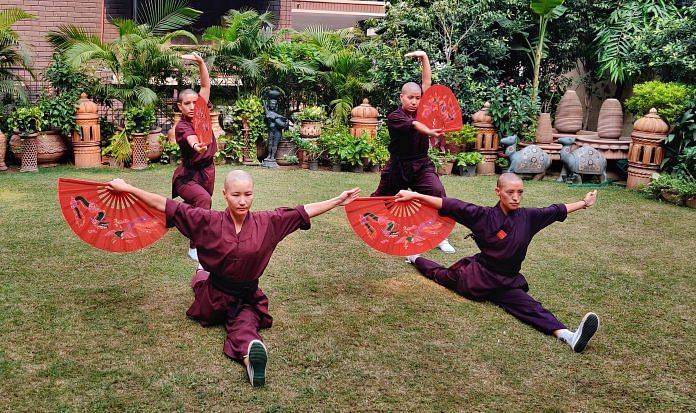New Delhi: At the age of 13, Jigme Migyur Palmo gave up eating meat, wearing make-up and buying any new clothes. She shaved her head, forfeited any future with a romantic partner and dedicated her life to becoming a Buddhist nun.
“You’re probably thinking that I live in a forest and pray on a pillow all day,” she says as she smiles, now 28 years old and with a disposition to laugh easily, face lighting up with earnest amusement at a joke. “But we’re known around the world as the Drukpa Kung Fu Nuns,” she says, “because we’re skilled in the martial art and train with extreme discipline.”
In the other corner of a private garden in Delhi Thursday, Jigme Rupa Lhamo closes her fan swiftly, gracefully standing up from a split position on the floor.
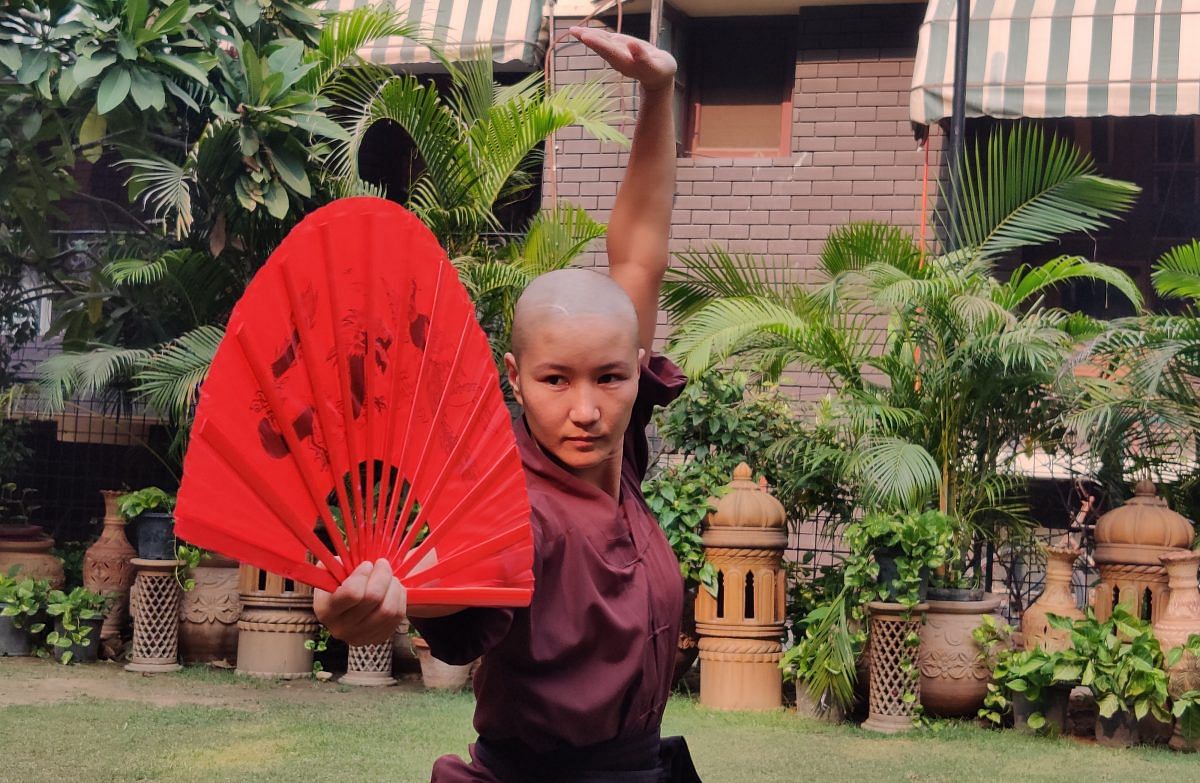
11 years ago, Jigme Pema Wangchen, the twelfth Gyalwang Drukpa and current spiritual head of the Drukpa (or dragon lineage of the Kagyu school of Himalayan-Buddhism) introduced kung fu into the lives of approximately 500 nuns to improve their physical health and spiritual well-being.
Today, these women, now 700 of them from various regions of Himachal Pradesh, Ladakh, Nepal and Bhutan, have cycled 4,000 km from Kathmandu in Nepal to Leh in India, have manually removed thousands of pounds of plastic litter from across the Himalayas. The nuns, aged anywhere between 8 to 80 years of age, also conduct self-defence workshops for women and girls in places where mainstream media and gender rights awareness is still a while away.
“Till the age of 13, I was actually an extremely shy, under-confident person,” Palmo says, “but now I have Jigme in front of my name, which means fearless.”
Lhamo makes her way to where we stand. She is two years younger, and the smallest in size of the nuns present in Delhi this week. “If I had one message for women out there, it’s that you should keep fighting to break free from your oppression. You don’t have to remain silent and subdued — talk about your story, teach others about what women are capable of. Because there’s nothing men can do, that we can’t.”
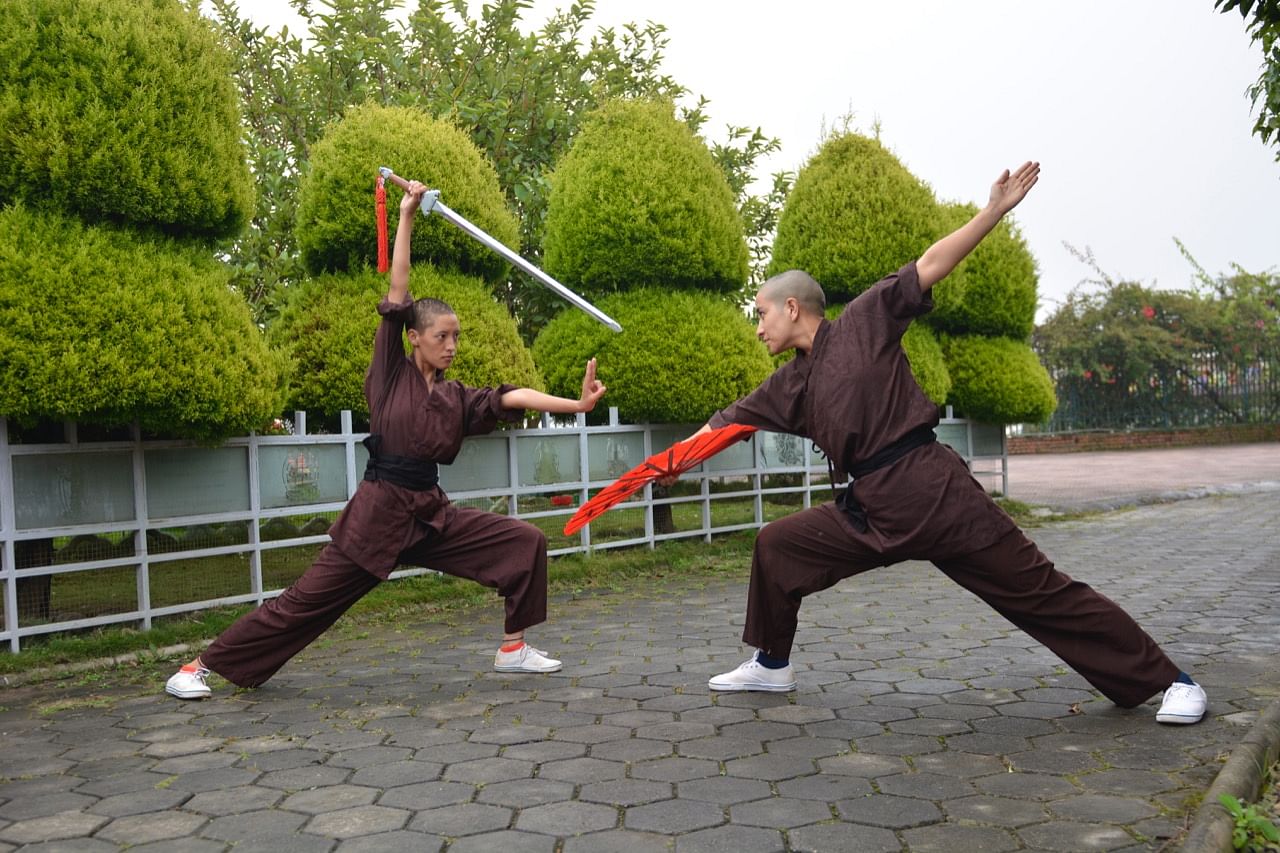
The nuns use their martial arts expertise to challenge gender roles in India’s conservative culture. The Gyalwang Drukpa has also encouraged them to learn skills traditionally reserved for men, such as plumbing, electrical fitting, driving and cycling and installed the nuns in leadership roles at Drukpa monasteries.
“We’re not saying we hate men. But they’ve been above us for too long, and it’s time we’re all treated as equal,” Palmo says firmly.
Also read: Why Delhi’s women are a lot like US Marines
A day in the life of a kung fu nun
Lhamo isn’t speaking from a theoretical assertion of gender equality, she lives and breathes a life of spiritual and physical discipline, beginning her days at 3 am. After two hours of personal meditation, daily prayers begin in the main hall of the nunnery at 5 am, lasting for three hours. Breakfast is followed by individual academic lessons in English, philosophy and music till noon, resuming again at 2 pm after a short lunch. Evening tea is served at 4 pm, followed by more prayers, tea and finally, kung fu classes from 8 to 10 pm.
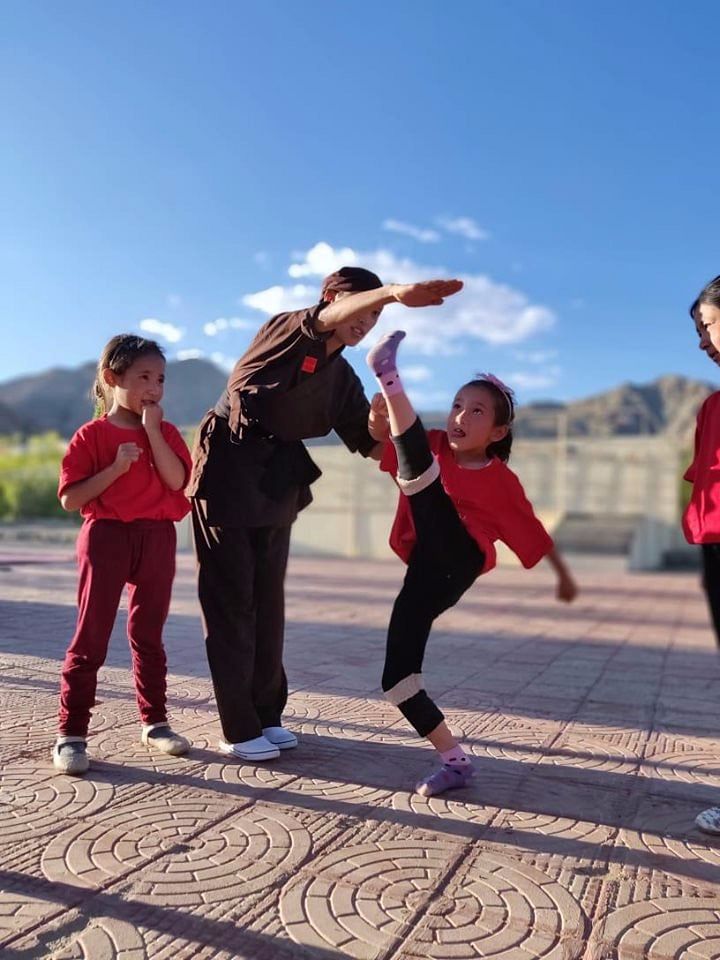
The nuns generally don’t eat dinner, and being vegetarian, rely on milk and ancillary products to fulfill their protein requirements.
“No, we don’t miss a ‘normal’ life at all,” Jigme Tontam Wangmo (27) from Lahaul and Spiti in Himachal Pradesh, laughs. “Sometimes it seems like it would be a lot harder to live a life so full of fiddling — fixing your hair, spending so much time on make-up and so much money on clothes.
“For us, all we wanted was to do something good for the world — to give back to nature, and to help people live better, happier and more empowered lives.”
Global recognition
Palmo, Lhamo, Wangmo and Jigme Osel Dipam (26), along with delegation of eight other kung fu nuns, are on their way to New York City on October 24 — to receive the Asia Society’s Gamechanger Award, previously presented to names like Indra Nooyi, Mukesh Ambani and Dev Patel.
“Our 2019 Asia Game Changers are women who have truly championed gender equality while making enormous contributions to society and social structures within their home countries,” Asia Society President and CEO Josette Sheeran said in a formal statement.
These nuns, determined to make a difference, have been the voice of disproportionately affected mountainous populations in the fight against climate change, as well as the defenders of young daughters being sold to human trafficking after the 2015 Nepal earthquake “because their parents could not afford to keep them anymore”.
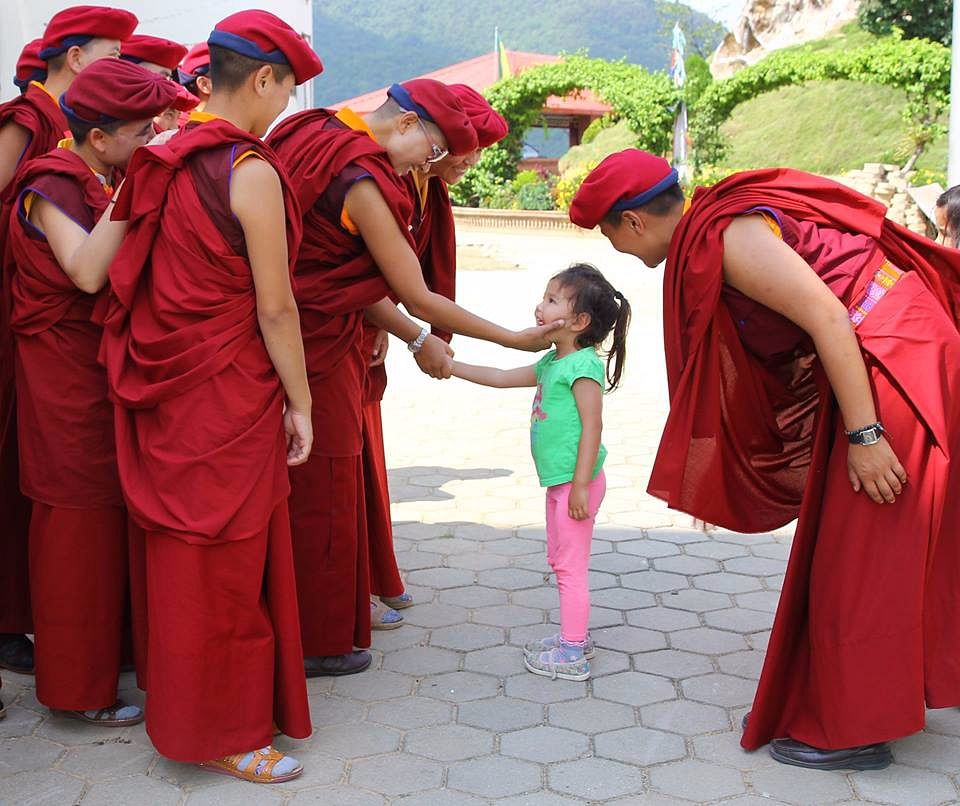
Following the calamity, the nuns refused to evacuate the area, choosing instead to trek to remote villages to remove rubble, clear pathways and distribute food to survivors.
“When there’s a problem, you can’t leave people behind and run in the other direction. We might have lived in tents for two years, I think, but this is what we’ve been taught, and what we believe — you have to show up when the world needs you,” Palmo says.
Also read: Why Ambedkar chose Buddhism over Hinduism, Islam, Christianity


